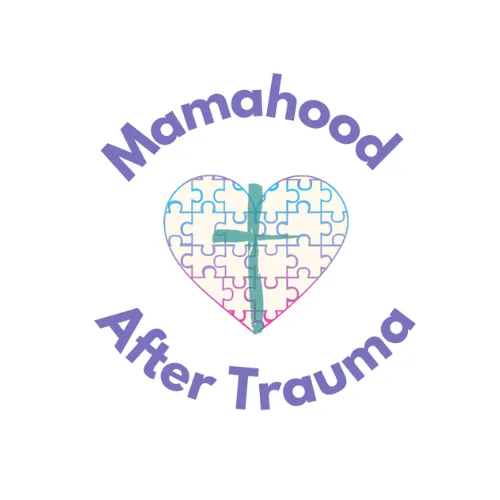
Discover a sanctuary for healing and growth in motherhood with the Mamahood After Trauma Podcast hosted by Emily Cleghorn. Dive into candid discussions and practical tips on parenting amidst trauma recovery.
Join Emily and her guests as they navigate the complexities of raising children while prioritizing personal healing. Find solace, strength, and joy in the beautiful chaos of mamahood after trauma.
Listen now!
Featured Posts

From Trauma to Tranquility: 5 Simple Habits for Gut Healing
As mamas who've experienced trauma, we often carry invisible burdens that impact our daily lives in ways we might not even realize. One area where this can show up unexpectedly? Our gut health. Today, I want to share some powerful insights from Heather Hansen, affectionately known as the "gut health paramedic," on the surprising connection between childhood trauma and digestive issues like bloating and fatigue.
Heather's journey resonated deeply with me, as I'm sure it will with many of you. She spoke candidly about becoming a mother at 19 and making a vow to break the cycle of trauma she experienced in her own childhood. But as we know all too well, healing isn't linear. Even when we think we've "dealt with" our past, those old wounds can resurface in unexpected ways.

The Hidden Impact of Childhood Trauma
One of the most eye-opening moments Heather shared was her experience at a trauma certification training. As she created her "trauma egg" - a visual representation of significant life events - she was struck by how much had happened in her early years. This exercise revealed something crucial: many of us have unknowingly "stuffed down" our trauma, thinking we've moved past it, when in reality, it's still affecting us on a physiological level.
Here's the kicker: research shows that children's brains are programmed 75% by age three and 100% by age five. This means that the beliefs we form about ourselves and the world in those early years can have a profound impact on our adult lives - including our physical health.
The Mind-Body Connection: How Trauma Manifests in Our Bodies
So, how exactly does childhood trauma lead to issues like bloating and fatigue? It all comes down to the powerful connection between our brain and our body. When we hold onto limiting beliefs or unresolved trauma, our bodies respond. Constant negative self-talk or feelings of unworthiness can actually hinder our body's ability to heal and function optimally.
5 Simple Habits to Support Healing and Gut Health
The good news? Heather shared five practical habits we can incorporate into our daily lives to support our healing journey and improve our gut health:
1. Be kind to yourself every day: Speak to yourself with the same compassion you'd offer a friend or your child. This simple shift can have a profound impact on your overall well-being.
2. Eat a rainbow of colorful foods: Aim to include a variety of colorful fruits and vegetables in your diet. These nutrient-dense foods support gut health and can help alleviate symptoms like fatigue and brain fog.
3. Move your body: Regular movement helps release stored energy and emotions. Find a form of exercise you enjoy, whether it's walking, yoga, or strength training.
4. Stay hydrated: Aim to drink half your body weight in ounces of water daily. Don't forget to include electrolytes for optimal hydration.
5. Let go of worry: Focus on the present moment and avoid getting caught up in "what-ifs." Deal with problems as they arise rather than expending energy on hypothetical scenarios.
Embracing the Journey of Healing
As we navigate the complexities of motherhood after trauma, it's crucial to remember that healing is an inside job. While we can't change our past, we have the power to shape our present and future through small, consistent actions.
By incorporating these simple habits into our daily lives, we're not just supporting our gut health - we're taking active steps towards holistic healing. Remember, you don't have to do this alone. Lean on your community, seek support when you need it, and be patient with yourself as you navigate this journey.
You're stronger than you know, mama. Your past doesn't define you, and with each small step, you're creating a brighter, healthier future for yourself and your little ones.
Don't miss an episode again!
Subscribe to get updates sent to your inbox!
© Copyright Emily Cleghorn 2024


